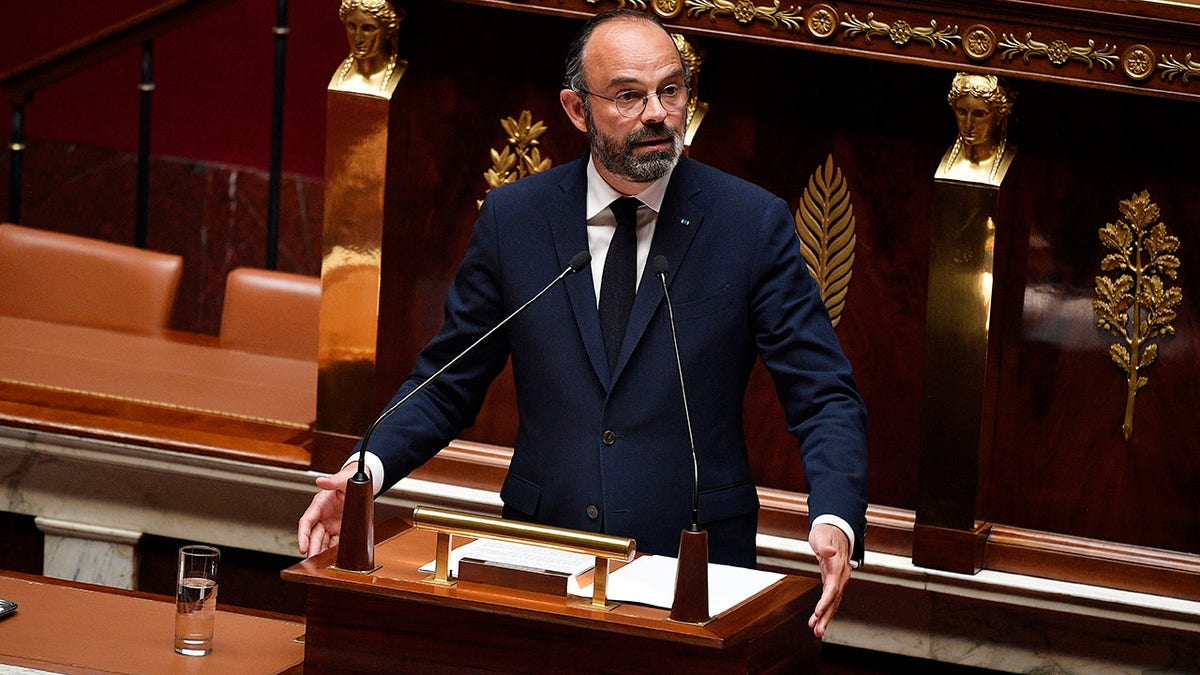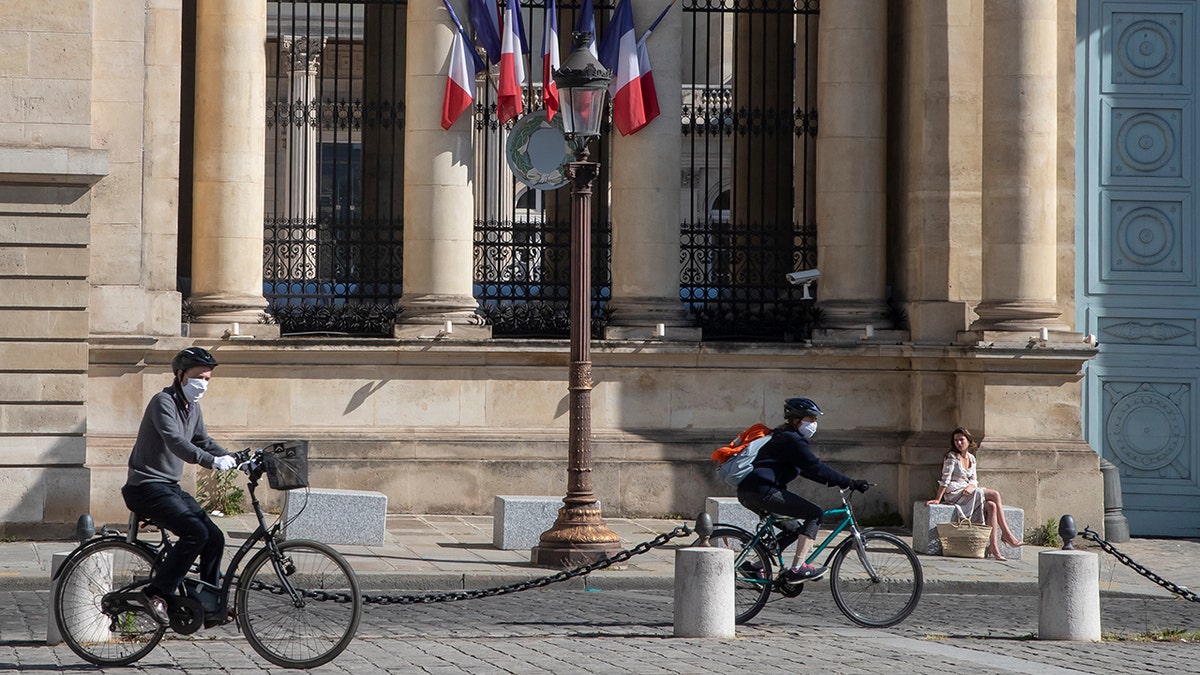How hospitals were incentivized to diagnose patients with COVID-19
Dr. Marc Siegel addresses the 20% add-on payment hospitals receive for treating coronavirus patients and if this may have led to fraud
Get all the latest news on coronavirus and more delivered daily to your inbox. Sign up here.
France and Spain unveiled stringent plans Tuesday to ease coronavirus restrictions after weeks of imposed lockdowns that have paralyzed the economies of two of the hardest-hit nations during the pandemic.
In a nationwide plan announced to parliament, French Prime Minister Edouard Philippe said "we must learn to live with COVID-19" or else risk " the economy falling apart" after a six-week lockdown.
Spanish Prime Minister Pedro Sanchez also announced that his country's four-phase plan to resume daily life will begin May 4 and will be vary based on factors that involve the infection rates, the number of intensive care beds available locally and how regions comply social distancing measures.
Restaurants will be able to open at no more than 30 percent capacity during the first phase. Working remotely from home will be recommended until the last phase sometime in June, Reuters reported.
“We are starting to glimpse an outcome that will be a reward for the huge collective effort made over the past weeks,” Sanchez said, warning that the “virus is still lurking.”
“It’s up to the people now, we are embarking on a journey without a precise route map ... What we’ve accomplished is enormous but it could all be lost if we don’t look after each other,” he added.
France and Spain were the latest European nations to lay out plans, following Austria, Belgium, Czech Republic, Denmark and Germany.
CLICK HERE FOR FULL CORONAVIRUS COVERAGE
Philippe said France will gradually emerge from lockdown on May 11, unless it is unsafe at that time, to stem the risk of economic collapse.
“We are going to have to learn to live with the virus,” Philippe told parliament. “We must learn to live with COVID-19 and to protect ourselves from it.”

Philippe presents his plan to exit from the lockdown at the National Assembly in Paris on Tuesday. (David Niviere, Pool via AP)
Part of the rigorous plan will require France to automatically test those who come in contact with someone infected with COVID-19. The government expects to be able to conduct 700,000 tests per week when the lockdown ends.
“All these contact cases will be tested and will be asked to isolate themselves," Philippe said.
Shops and markets can reopen, while restaurants and cafes will remain closed, France 24 reported. Citizens will be encouraged to work from home for another three weeks, according to Bloomberg.
Masks will be mandated for all high school students when they return to classrooms beginning May 18. Elementary school students won't be required to wear masks.

Cyclists wear masks to protect against the spread of the coronavirus ride past a woman who enjoys the sun in front the French parliament in Paris on Sunday. (AP Photo/Michel Euler)
Large-scale public gatherings will remain banned. Philippe said the remainder of the 2019-20 professional sports season, including soccer and rugby, won't be completed.
After Philippe presents the plan, the National Assembly will debate his proposal and hold a vote.
CORONAVIRUS LOCKDOWN: WHICH EUROPEAN COUNTRIES ARE EASING RESTRICTIONS?
France had 23,327 virus-related deaths as of Tuesday. The coronavirus has killed 23,521 people in Spain.
The Spanish announcement followed a new order allowing children to leave their homes for one hour of supervised activity per day. Sanchez said the government chose not to set deadlines for easing restrictions for what he called a fluid situation.
Countries around the world are grappling with how to restart their battered economies, reopen schools and resume public events after imposing strict measures to slow the spread of the COVID-19 virus.
CLICK HERE FOR THE FOX NEWS APP
Germany reported a rise in COVID-19 infection rates from 0.9 to 1.0 just one week after allowing small retailers, car and bicycle dealers, and bookstores to reopen.
A forecast from the Bank of Spain found that the virus could push unemployment up to nearly 22 percent. Sanchez warned of a possible recession that will demand a response from the European Union.
The Associated Press contributed to this report.









































